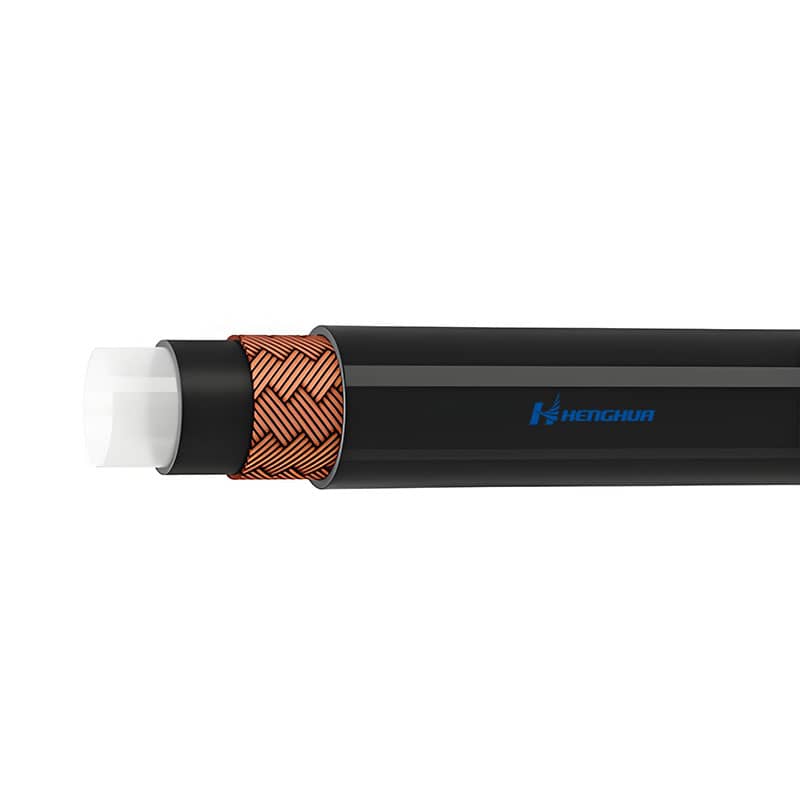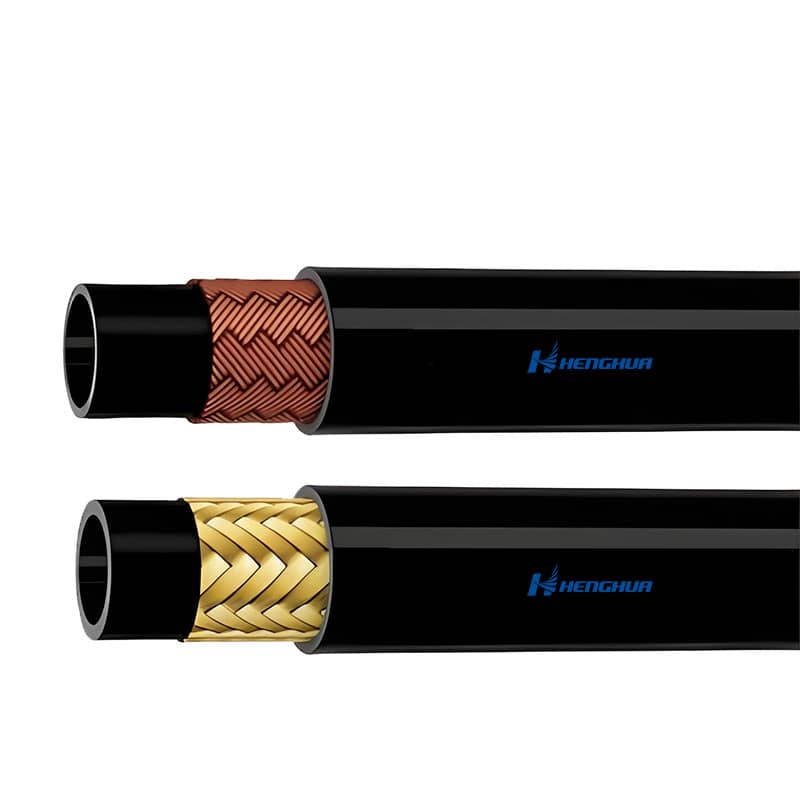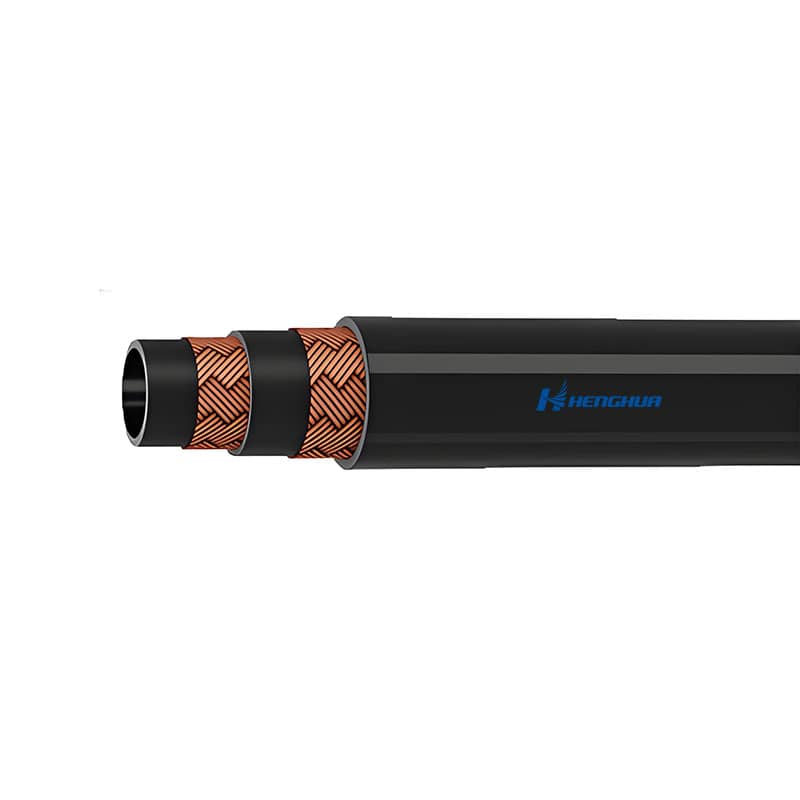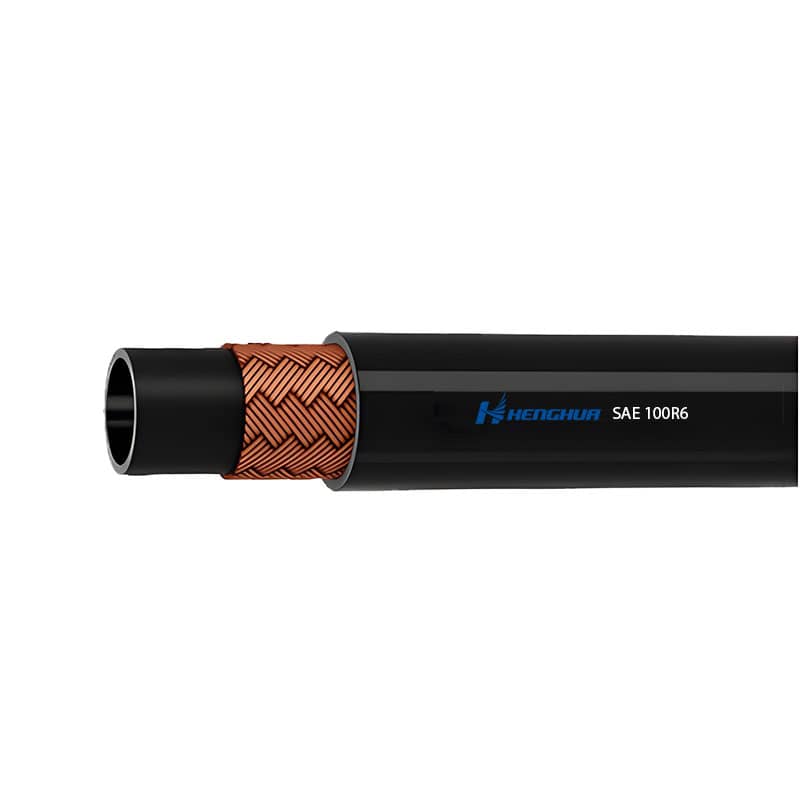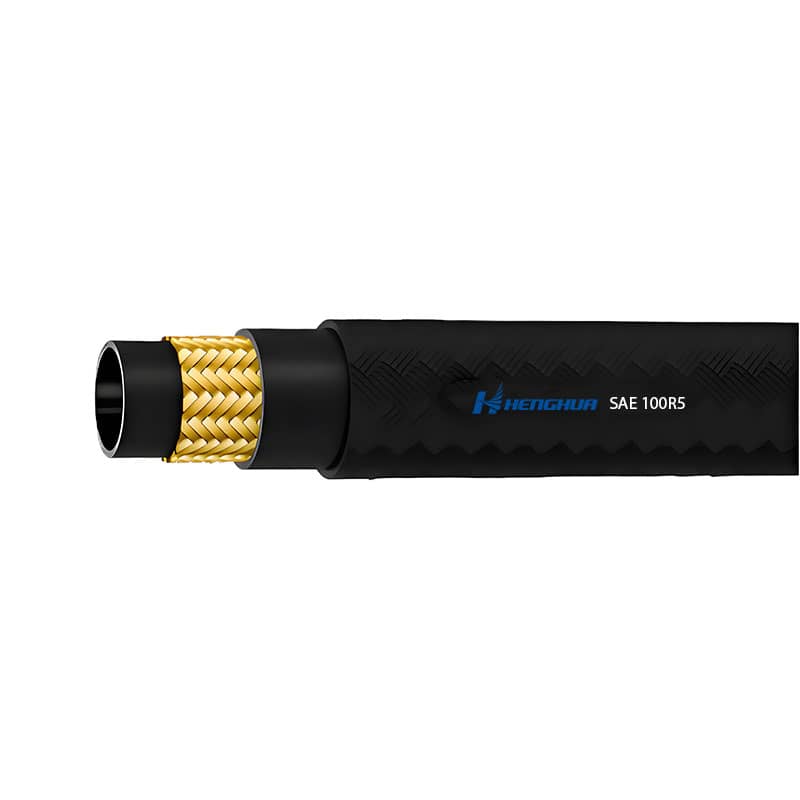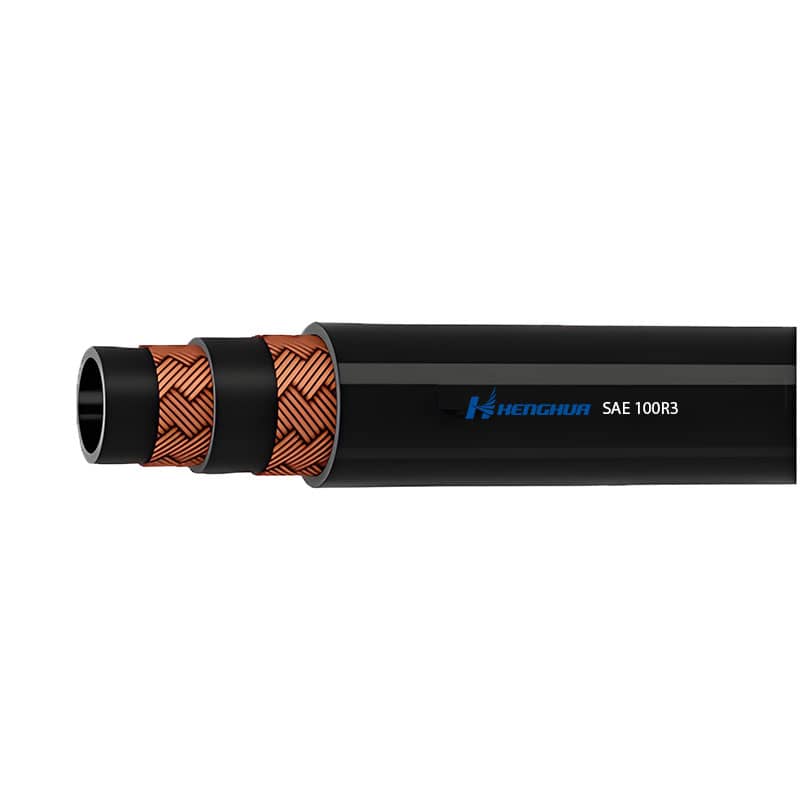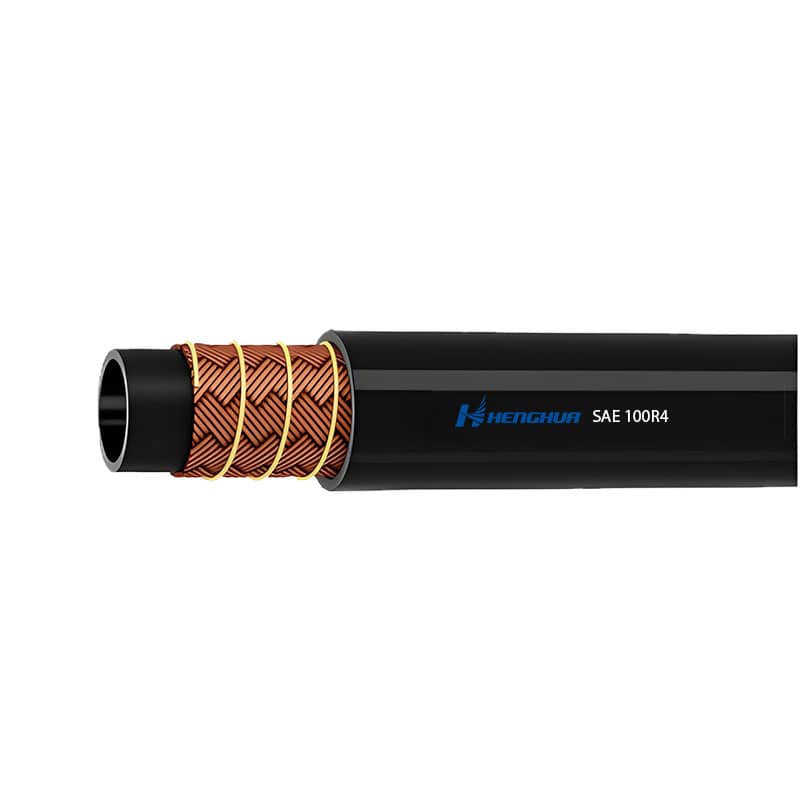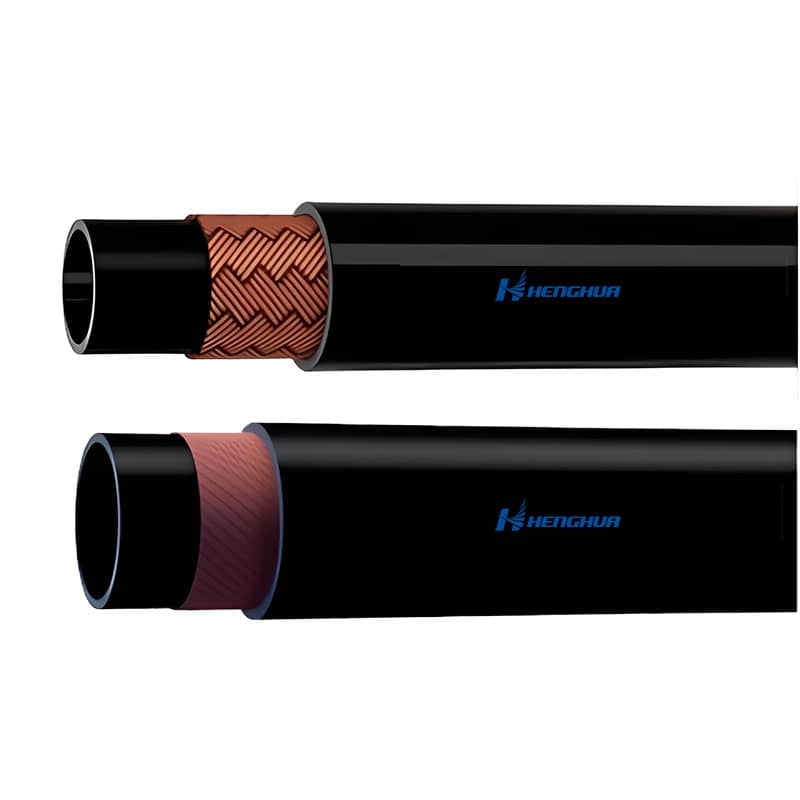Custom Hydraulic Hoses vs. Standard Hoses: What You Need to Know
Hydraulic hoses are crucial components in hydraulic systems, designed to transport pressurized fluids needed to power machinery across various industries. These hoses are fundamental in sectors such as construction, automotive, aerospace, and manufacturing, where reliability and performance are key. The choice between custom and standard hydraulic hoses significantly impacts system efficiency, longevity, and safety. Custom hydraulic hoses are tailored to meet specific operational needs, whereas standard hoses offer a more generalized solution. This article will explore the differences between custom hydraulic hoses and standard options, focusing on their application and benefits in industrial systems.
What Are Hydraulic Hoses?
Hydraulic hoses are flexible tubes used to convey pressurized fluid within hydraulic systems. They are made from durable materials that resist abrasion, high pressure, and extreme temperatures. Their primary function is to transport fluids like oil, water, or air that generate the power necessary for heavy-duty machinery operations.
Types of Hydraulic Hoses:
-
Braided Hoses: These hoses feature multiple layers of braided steel wire, providing strength and flexibility. They are commonly used in low to medium-pressure systems.
-
Spiral Hoses: These are designed for high-pressure environments and are reinforced with multiple layers of steel spirals to prevent collapse under pressure. They are used in industries that require high-strength hoses, such as construction and mining.
-
Thermoplastic Hoses: Made from a combination of synthetic materials, these hoses are lightweight, durable, and resistant to chemical exposure, making them ideal for industries like food processing or pharmaceuticals.
Importance of Customization for Specific Applications
While standard hoses are suitable for general uses, custom hydraulic hoses are essential for systems with unique demands. Customization can address specific requirements such as extreme temperatures, chemical exposure, or intricate fittings. Custom hydraulic hoses ensure a precise fit for machinery, improving operational efficiency and safety, and extending the lifespan of both the hose and the system.
In some cases, custom hydraulic hose crimping machines are used to create specialized fittings and ensure a secure and leak-proof connection, which is vital for maintaining system integrity.
Custom Hydraulic Hoses Explained
Definition of Custom Hydraulic Hoses
Custom hydraulic hoses are specifically engineered and built to meet the unique requirements of a hydraulic system. Unlike standard hoses, these are tailored for specific pressure ratings, fluid types, and operational environments, providing greater reliability and efficiency in specialized applications.
Common Specifications:
-
Materials: Custom hoses can be made from various materials, including rubber, thermoplastic, or steel-reinforced materials, depending on the application’s requirements. For example, thermoplastic hoses are ideal for environments with exposure to chemicals, while steel-reinforced hoses are perfect for high-pressure applications.
-
Fittings: The fittings in custom hydraulic hoses are also tailored to match the specific connections required by the system. This includes specialized connectors, flanges, and couplings that ensure a secure, leak-proof seal.
-
Dimensions: Custom hoses are available in a variety of lengths, diameters, and thicknesses to accommodate unique system configurations. This ensures the hose fits perfectly and delivers optimal performance.
Benefits of Customization
-
Improved Performance: Custom hydraulic hoses are designed to meet the specific demands of a system, leading to better fluid transfer efficiency, higher pressure tolerance, and smoother operation.
-
Compatibility with Unique Systems: Custom hoses are ideal for systems with unconventional layouts or specialized requirements. Whether it's an unusual fitting type, specific temperature tolerance, or a complex routing requirement, custom hoses can provide the necessary fit.
-
Enhanced Durability: With features like abrasion-resistant sleeves, custom hydraulic hoses can endure harsh environments, reducing wear and extending the hose's lifespan.
Additional keywords: custom hydraulic hose assemblies, custom hydraulic hose near me.
Standard Hydraulic Hoses Overview
Features and Specifications of Standard Hydraulic Hoses
Standard hydraulic hoses are designed for general-purpose use and are typically made from synthetic rubber or thermoplastic materials. They are available in various pressure ratings, sizes, and lengths but may not provide the level of specificity that custom hoses offer. Standard hoses are generally used in applications where the requirements do not demand specialized materials or configurations.
Common Use Cases and Limitations
Standard hydraulic hoses are commonly used in general industrial applications, such as construction, agriculture, and automotive industries. They are reliable for most common hydraulic systems but may face limitations in high-pressure, high-temperature, or corrosive environments where custom hoses would be more effective.
Comparison Table: Custom vs. Standard Hoses
|
Feature |
Custom Hydraulic Hoses |
Standard Hydraulic Hoses |
|
Performance |
Tailored for specific applications, higher performance in demanding environments |
Suitable for general applications, less optimized for specialized needs |
|
Cost |
Generally higher due to customization |
Lower initial cost, but may require replacements more frequently |
|
Longevity |
Longer lifespan, especially with features like abrasion-resistant sleeves |
Moderate lifespan, may wear out faster in extreme conditions |
Custom hydraulic hoses offer significant advantages in performance, durability, and compatibility, making them the ideal choice for specialized applications. Standard hoses, while cost-effective and reliable in many cases, may not be the best solution for systems with unique demands.
When to Choose Custom Hydraulic Hoses Over Standard Hoses
Custom hydraulic hoses offer specific advantages over standard hoses in various industries and applications, particularly where standard options may not meet the required performance or durability standards.
Applications Requiring Custom Hydraulic Hoses
-
Heavy Machinery: In industries such as mining, construction, and agriculture, hydraulic systems in heavy machinery often face extreme pressures and harsh conditions. Custom hoses provide the needed flexibility, pressure tolerance, and resilience to handle the demanding requirements of these environments.
-
High-Pressure Environments: For systems operating under high-pressure conditions, such as in offshore drilling or hydraulic presses, custom hoses are essential. They are engineered to withstand higher PSI ratings and prevent ruptures or leaks.
-
Industries:
-
Automotive: Custom hoses are critical in automotive applications where precision and durability are necessary, especially in performance or off-road vehicles.
-
Construction: Custom hoses in construction equipment like cranes, bulldozers, and excavators are designed to meet the unique demands of each system, ensuring efficiency and safety.
-
Marine: The marine industry requires hoses that can resist saltwater corrosion and handle high pressures. Custom hoses are specifically built to endure these extreme conditions, ensuring reliability and performance at sea.
Tools and Machines for Custom Hydraulic Hoses
To assemble or repair custom hydraulic hoses effectively, specific tools and machines are required. These tools help ensure precise connections and optimal performance.
Overview of Key Tools:
-
Hydraulic Hose Crimper: This is the most essential tool for the fabrication of hydraulic hoses. A hydraulic hose crimper is used to attach the correct fittings to the hose, ensuring a secure and leak-free connection. It operates by applying pressure to crimp the fitting onto the hose, making it suitable for high-pressure hydraulic systems.
-
Manual Hydraulic Hose Crimper: A manual crimper is a more affordable and portable option for smaller workshops or fieldwork. While it requires manual operation, it still provides the precise crimping needed for custom hydraulic hose assemblies, making it useful for less demanding applications or smaller-scale repairs.
-
Portable Hydraulic Hose Crimper: For on-the-go maintenance and repairs, portable hydraulic hose crimpers are ideal. These compact machines allow workers to crimp hydraulic hoses directly at the job site, ensuring minimal downtime and efficient repairs in the field. Portable crimpers are essential for industries like construction and agriculture where equipment may need to be repaired in remote locations.
Benefits of Using These Tools for Maintenance and Repairs
-
Accuracy and Precision: Using these crimpers ensures that the hydraulic hose fittings are securely attached, which is crucial for maintaining the integrity of the hydraulic system and preventing leaks.
-
Time Efficiency: Properly crimped hoses ensure faster installations and repairs, minimizing downtime for equipment and machinery.
-
Safety: The right tools help ensure that hoses are crimped to the proper specifications, reducing the likelihood of failure due to improper fittings.
These tools are indispensable for anyone working with custom hydraulic hoses, ensuring that hoses are tailored to the specific requirements of each hydraulic system and providing longevity and safety to the machinery they power.
Cost Analysis: Custom Hydraulic Hoses vs. Standard Hoses
When considering custom hydraulic hoses over standard hoses, several factors influence the overall cost. These factors should be carefully assessed to ensure the investment provides optimal performance for your system.
Factors Influencing the Cost of Custom Hydraulic Hoses
-
Material Type: Custom hydraulic hoses are made from materials chosen for specific applications. Common materials include rubber, thermoplastic, and steel-reinforced synthetic materials. High-performance materials like stainless steel or specialized polymers can increase costs but are essential for extreme conditions (e.g., high-pressure or chemical exposure).
-
Pressure Rating: The higher the pressure rating, the more expensive the hydraulic hose. Custom hoses are often engineered to meet exact specifications, such as higher pressure tolerance, making them more costly compared to standard hoses.
-
Length and Fittings: The length of the hose and the type of fittings used (e.g., custom, corrosion-resistant fittings) also influence the price. Custom hydraulic hoses typically require bespoke fittings tailored to specific machinery or hydraulic systems, adding to the cost.
Cost-Saving Tips for Custom Hoses
-
Working with Reliable Manufacturers: Partnering with reputable hydraulic hose manufacturers can help you get the best price while ensuring the hoses meet your exact needs. Reliable manufacturers may offer better pricing on bulk orders or long-term contracts, helping reduce the cost of custom hoses.
-
Using Online Tools for Quotes: Many manufacturers and suppliers now offer online tools to request quotes for custom hydraulic hoses. These tools allow you to input specific details, such as hose material, pressure rating, and dimensions, to receive accurate quotes for the hoses you need. This can save time and ensure you get competitive pricing for your custom orders.
How to Maintain and Extend the Life of Hydraulic Hoses
Proper maintenance is essential to extend the lifespan of your hydraulic hoses, whether they are custom-made or standard. Regular inspections and appropriate handling can prevent costly repairs and downtime.
Regular Inspections for Wear and Tear
Hydraulic hoses should be inspected regularly for any signs of wear, such as cracks, bulges, or abrasions. Inspecting hoses before use and during scheduled maintenance can help detect early issues, preventing system failure and enhancing safety.
Proper Storage and Handling Techniques
To prevent premature aging and damage, hoses should be stored in a cool, dry area away from direct sunlight or heat sources. Coiling hoses properly (without kinks) and using protective sleeves can prevent damage from abrasion, cuts, and UV degradation. Proper handling during installation and operation also prevents undue stress on the hoses.
Quick Repairs Using a Manual Hydraulic Hose Crimping Machine
In case of minor damage or wear, a manual hydraulic hose crimping machine allows for quick on-site repairs. By attaching new fittings or repairing the damaged hose, these tools reduce downtime and ensure that the hydraulic system continues to function effectively. Keeping a manual crimper on hand for emergency repairs helps maintain system performance with minimal interruption.


